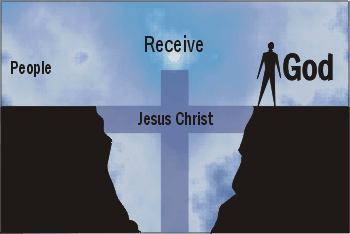Note: I'm currently reading Rob Bell's new and extremely popular book Love Wins. I will be posting reviews on various sections of the book as I read them while giving a Catholic perspective to the questions he poses.
Other Posts on Love Wins:
Intro
Part 2 -- On Heaven
Part 3 -- On Hell
Other Posts on Love Wins:
Intro
Part 2 -- On Heaven
Part 3 -- On Hell
As I mentioned before, both Rob Bell and this book are highly controversial. Chapter 1 is no different. Bell begins by questioning how Christians are saved.
 Bell poses the key question: "Isn't that what Christians have always claimed set their religion apart--that it wasn't, in the end, a religion at all--that you don't have to do anything, because God has already done it through Jesus?"
Bell poses the key question: "Isn't that what Christians have always claimed set their religion apart--that it wasn't, in the end, a religion at all--that you don't have to do anything, because God has already done it through Jesus?"But then, gives example in Scripture where people do have to do something.
He eventually summarizes all the examples in Scripture (he actually gives a few more later).
"So is it what you say, (John 3, Luke 20)
or what you are, (John 3, Luke 20)
or what you do, (Matthew 7)
or what you say you're going to do, (Luke 19)
or who your friends are, (Mark 2)
or who you're married to, (1 Corinthians 7)
or whether you give birth to children?" (1 Timothy 2)
(Scripture verses provided in the book, but added by me to this summary quote).
I'm not sure I could have written a chapter on this any better.
Salvation and entry into the Church as a Christian is one of the most foundational acts in the Christian Church. And yet, there are so many different opinions in Christianity on how this happens exactly. Which one is it?
I love this chapter because I feel that Catholicism (and perhaps Orthodoxy and Anglicism to some degree) has a response that is able to handle the various Scripture passages and the complexity and depth of this topic. Whereas, a Christian church who only believes in saying a prayer and committing to once saved, always saved ultimately falls short.
How do Catholics handle the various claims and ways to salvation in Scripture?
Answer: Both/And; All of the Above
 We believe that "being saved" or justification is an absolutely unmerited and free gift from God made possible through Jesus Christ’s death on the cross (cf. CCC 2010). This is good news. We are adopted into God’s family through God’s grace. The idea that we can save ourselves by our own actions is a heresy called Pelagianism and is condemned by the Catholic Church (cf. CCC 406).
We believe that "being saved" or justification is an absolutely unmerited and free gift from God made possible through Jesus Christ’s death on the cross (cf. CCC 2010). This is good news. We are adopted into God’s family through God’s grace. The idea that we can save ourselves by our own actions is a heresy called Pelagianism and is condemned by the Catholic Church (cf. CCC 406).This grace is symbolized (and is made actual) by Baptism, especially infant Baptism. The infant does nothing to merit the grace received. In fact, it is the faith of the parents and godparents that enter the baby into the Family of God (just like Bell's example in Mark 2).
We do believe that in order to be saved we must respond to God’s invitation of salvation (cf. Matthew 22:1-14, CCC 1993, CCC 2002). By the way, even this response can only be done through God's grace, but it still involves our free will (CCC 1996; 2002).We begin this pilgrimage of salvation through our Baptism and continue the process by responding with faith in words and deeds (cf. CCC 1253-1254; Matthew 7).
The best summary on the issue I have seen is by Catholic Answers.
"I am already saved (Rom. 8:24, Eph. 2:5–8), but I’m also being saved (1 Cor. 1:18, 2 Cor. 2:15, Phil. 2:12), and I have the hope that I will be saved (Rom. 5:9–10, 1 Cor. 3:12–15). Like the apostle Paul I am working out my salvation in fear and trembling (Phil. 2:12), with hopeful confidence in the promises of Christ (Rom. 5:2, 2 Tim. 2:11–13)."
Bell's critique of Protestantism's view of salvation doesn't fall on Catholicism. It reveals a need for a Catholic perspective on the topic.
Have you read the book yet?
What are your thoughts on this chapter?
Note: Despite a more robust theology on the topic, I think Protestants have done a fantastic job of simplifying the acceptance of Jesus Christ into our lives. Historically, Catholics seem to have so much depth they fail to know how to present it to others. If we could marry this simplicity with rich Catholic theology, this would pack a powerful one-two punch. Here is one example of how to do this. If you follow the links, it works you through how to present the Gospel to someone in a Catholic context.
--
Other Posts on Love Wins:
Intro
Part 2 -- On Heaven
Part 3 -- On Hell
--
Other Posts on Love Wins:
Intro
Part 2 -- On Heaven
Part 3 -- On Hell








